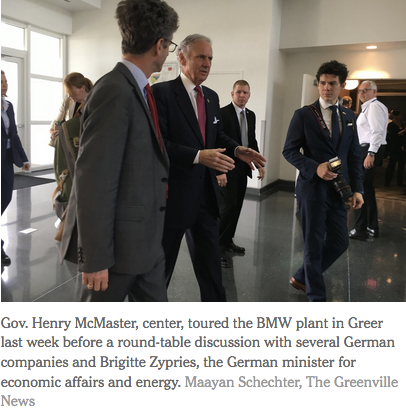Whether Mr. Trump’s Twitter messages and comments are just bluster or grounds for a significantly retooled trade stance toward Germany is not altogether clear. Obama administration officials also expressed frustration with Germany’s vast trade surplus with the United States, which stood at $64.8 billion in 2016. It is also unclear how much control Germany ultimately has over this reality because its monetary policy is set by the European Central Bank and because of its membership in the European Union.
Mr. Trump has singled out the German auto industry in the past. In January, in the German newspaper Bild, he threatened to levy a 35 percent tariff on cars that BMW imported to the United States.
The broader concern, in states like South Carolina, is the idea that Mr. Trump is presenting foreign companies with new waves of doubt and instability as they consider expanding or relocating stateside.
“A company like BMW has been around 100 years, and they expect to be around another 100 years, and so they’re making very serious location decisions based on our trade policies and they expect those to be honored,” said Doug Woodward, an economics professor at the University of South Carolina. “They expect those to change, but not fundamentally. And they thought that we were all moving in the direction of more open trade.”




